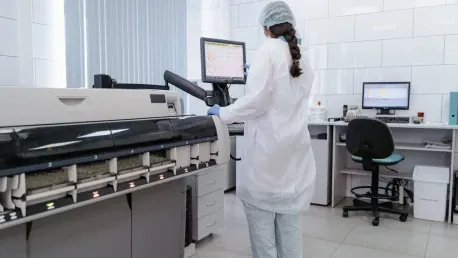
The transformative impact of technology on public health initiatives and personal health management is undeniable. Advanced tools such as artificial intelligence (AI), big data analytics, wearable devices, and telemedicine are now pivotal in tracking disease outbreaks, personalized health

In a rapidly evolving digital landscape, the challenge of data storage has become increasingly prominent, prompting researchers to seek innovative solutions. Zhang and colleagues introduced a groundbreaking method known as the epi-bit technique, revolutionizing DNA storage. This method leverages

Craniotomy, a common surgical procedure performed to remove brain tumors, carries a significant risk of inducing seizures in patients, a complication that can lead to increased cerebral pressure, aspiration pneumonia, and prolonged hospital stays. Although guidelines generally discourage routine

Diarrheal diseases have long been a significant global health challenge, particularly affecting vulnerable populations such as children under 5 and the elderly. However, a comprehensive study by the Institute for Health Metrics and Evaluation (IHME) published in The Lancet Infectious Diseases

The biotech industry is on the brink of a significant transformation, driven by advancements in genetic validation, data-centric investment strategies, and the integration of real-world data (RWD) in clinical trials. By 2025, these innovations are expected to revolutionize cardiovascular research

The digital health industry has witnessed remarkable advancements in 2024, driven by the integration of artificial intelligence (AI) and the growing emphasis on personalized care. High-level executives from various sectors of the healthcare industry have shared their insights on these